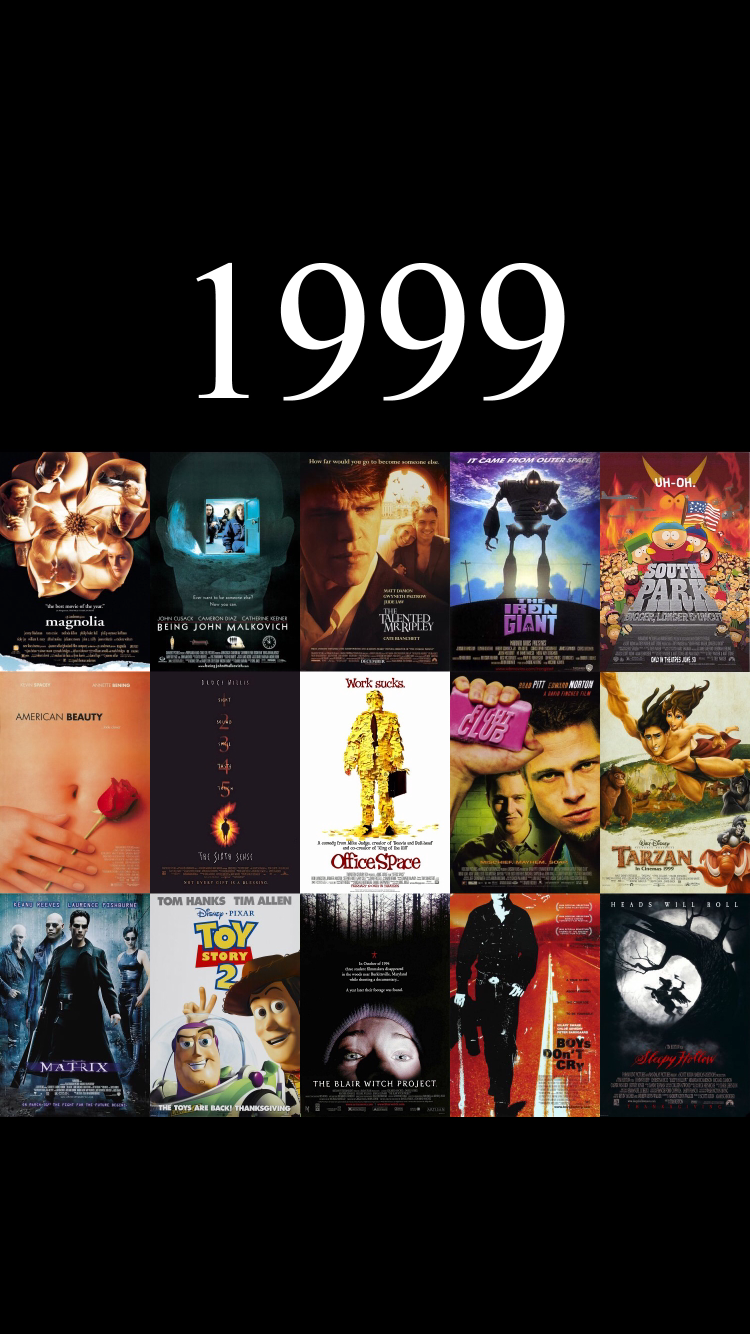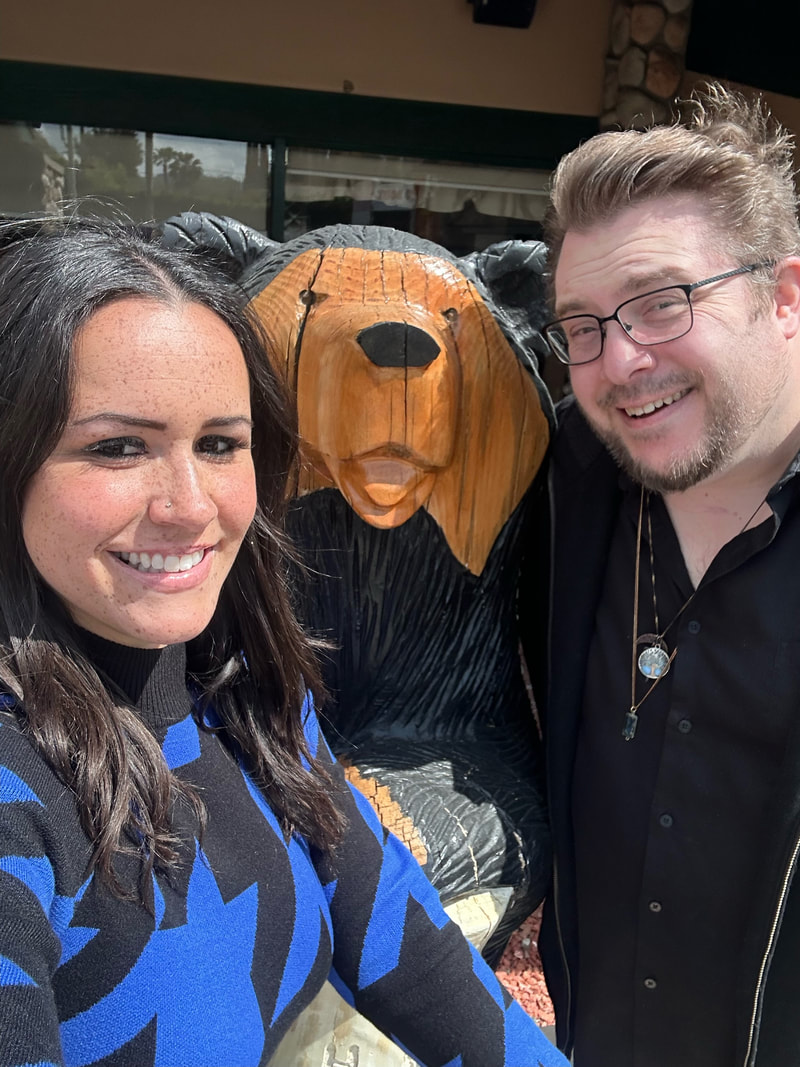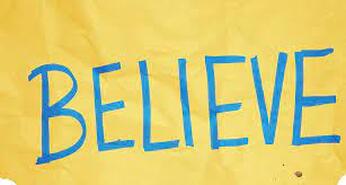|
As the fall (aka Oscar) movie season begins, I tend to think about the most transitional year of my life, 1999. In 1999 I graduated high school, started college, quit my first job, became estranged from my father, started coaching wrestling, and asked out (unsuccessfully) the first girl in my life. Yes. I wasn't a playa in high school. Don't act shocked. I also fell in love with cinema. Truly. Madly. Deeply. Like the popular 1998 song by Sound Garden states. 1999 was a huge year for cinema. Star Wars: Episode I came out. So did Steve Martin's The Out Of Towners. But I'll skip that review for never. 1999 was the year of Hollywood's midlife crises films. Mostly about men struggling in this particular time and place. Y2k was looming. Cell phones were for "emergencies only." Terrorism wasn't a real national threat yet. The end of the tech boom and Clinton presidency was near. Numerous films were existential exercises in finding one's place in the universe and growing up. Most, if not all, of these films were about white men between 30-60 looking at where they stand in an ever changing America. What's interesting is that the two most iconic men of 1998 (The Dude and Truman Burbank) had less of a struggle but more natural conflict. Think about how these films reflected that idea that everyday life was really a trap: White Privilege Films: American Beauty Analyze This Arlington Road Breakfast of Champions Fight Club Mumford The Talented Mr. Ripley I Hate My Job Films: Any Given Sunday Being John Malkovich Bowfinger Bringing Out The Dead Election For Love of the Game The Muse Office Space Growing Up & Sexual Frustration Big Daddy Eyes Wide Shut Galaxy Quest Magnolia Life Can Be Explained With The Supernatural The Matrix Dogma Thr Sixth Sense The Green Mile Of the above list, 5 of these films changed my life. They changed how I saw the world politically, religiously, sexually, and as a white male entering adulthood. All five were mentioned above. Though Dogma could have made this list. So here's the list and why: Bringing Out The Dead If there was one film that captured my emotional state of business, it was Martin Scorsese's ode to ambulance drivers staring Nicolas Cage and Ving Rhames. The film is a manic depressive wet dream of a film. Cage spends the majority of the movie in a deep haze, trying to make sense of a world in which so much destruction happens around him. It won't be until The Weather Man (2005) where he'll capture that same everyone loneliness. The line "it can always get worse," said by Rhames, still haunts the conscious part of my brain, and I know it looms in my subconscious indefinitely. On some level, this film showed me that adulthood is not necessarily to be glorified for its own sake, but that adulthood should be purposeful. The he irony of the film was Cage played a savior of men who could not save himself. Office Space In the summer of 1999 I quit my first job. I was at MANN movie theaters. Maybe this explains my obsession with film that year? It was literally my life. I quit because I hated the way middle management treated me. There was this one manager who was upset that the hottest girl that either of us had ever known (she was 18, and I was 16) thought I was funny and Friendzone-able (I didn't know about the Friendzone yet) and that he (19 years old) was creepy and not Friendzone-able. He wrote me up for stupid things that got reversed by upper management. He would put me on shifts and stations that involved cleaning bathrooms and carding people at the theater doors. By the way, want to become unpopular in high school? Card your friends at the movie theater. I hated that job by the end. It would be these experiences that made me relate immediately to Office Space, Mike Judge's angry film about office politics and inefficiencies. I didn't see the film in theaters, but I did see it at my friend's house. When they destroyed the copy machine, I got the anger. I would later (as a teacher) understand the copy machine hatred even more. What I gathered from Office Space was that there is a soullessness to working a cubicle job. I never worked one. Instead I worked outside at the gas station at Costco, the tutoring center at Moorpark Junior College, Border's bookstore, the YMCA, and then started an on again off again teaching career. Many of my friends took on "office space" jobs, and many offered me opportunities to work with them there. I took the road less traveled by... Fight Club If there was ever a film that tapped into the idea of white privilege before it became a modern diagnosis, David Fincher's existential tale about the end of masculinity would be it. Brad Pitt became an icon and Edward Norton became our next Sean Penn with this film which argued men couldn't be men anymore in a post-feminist, post-modern, post-Christian, post-everything society. So what do men do to recapture the spark of manhood? They beat the crap out of each other. Hence Fight Club. Of course the plight of Tyler Durden spirals out of control with alter-egos, conspiracy theories, and global terrorism. Of course, who is to blame? Poor Helena Bonham Carter gets the majority of the blame. She stands side by side with Norton watching the world burn. I knew I enjoyed this film when I first saw it, but was unsure why. As a wrestling coach, I got the need to an outlet of male aggression in a newly designed Emo/Prettyboy society, but it wasn't until about 5 or 6 years later I really got the point of the film. While all the above themes are central to understanding the thesis of the film, it was the anti-materialistic message I realized was so powerful. Pitt said, "We buy stuff we don't need to impress people we don't like." So true. And upon reflection, I minimalized so much of my life. I canceled my credit cards and lived off my debit card. Better to only spend money I have. Not money I think I'll have. Fight Club never encouraged me to punch a stranger in the face, but it is the reason I haven't owned or used a credit card in my adult life. The Talented Mr. Ripley Some films do not look that good from the trailer, and Matt Damon's first major star vechile since Good Will Hunting was one of those for me. Was it a drama? A thriller? A period piece? Oscar bait? Yes. Yes. Yes. And yes. But it the film was also emotionally cathartic. For every guy who felt the Dicky's (Jude Law) of the world got everything, while the rest of us fought for table scraps, this film about a murder who stole identities of more appealing men to be was interesting to 17 year old Paul Douglas Moomjean. I I wanted all of those things the Law character had: wealth. looks. the girl. But the method in which Ripley takes it was so wrong. So evil. So narcissistic. Yet all so truthful. If Fight Club touched on the frustrations and took it out on each other, Ripley was about going after the men we wished we were. Setting aside the queer theory attached to the film, What I realized after the film was done, was that my desires were leading to the same actions Cain used over Abel. That if I'm jealous, I'll become a monster. The cathartic power of cinema freed me from building up jealously or envy that would have lead to a place of no return. American Beauty If there was ever a character who would have voted for Donald Trump, I believe the disillusioned early version of Kevin Spacey's Lester Burnham. The final version would have been a #FeelTheBern guy, but the sad earlier version would have eaten up Trump's message to middle class white men that life was better when just being white and male was enough to be successful and happy. Once Lester blackmails his boss, smokes pot, gets a fast food job and pursues the 17-year old (ironically virgin) sexpot his life becomes alive. His entire existence makes sense. His pursuit of happiness leads him to pure hedonism. But that pursuit brings on his tragic death. Growing up evangelical Christian, this film spoke to me. I'd seen Christianity morph into some type of "Republicanity" with material gain being a proof of God's blessing, yet I've watched the older people in my life (I was 18) get divorced, cheat, quit jobs, pursue other ventures, etc. The sitcom level of happiness was the real illusion. Through this film I knew I didn't want to be Lester, but I also knew I didn't want to become some clone of a middle-America Reaganite. It was the last words that got to me and the last sentence that put things into some type of artistic perspective: ...but it's hard to stay mad, when there's so much beauty in the world. Sometimes I feel like I'm seeing it all at once, and it's too much, my heart fills up like a balloon that's about to burst... And then I remember to relax, and stop trying to hold on to it, and then it flows through me like rain and I can't feel anything but gratitude for every single moment of my stupid little life... You have no idea what I'm talking about, I'm sure. But don't worry... you will someday... So there. The 5 films that changed my life in 1999. Never say it's "just a movie." That would be like saying Beethoven was just a music guy. Churchill was just a politician. Or that Jesus was just a rabbi.
My Life changed in 1999. And here is the written proof of such changes.
1 Comment
Daniel Smith
10/19/2016 08:11:47 pm
Thank you for sharing how the art of cinema has the power to make us question the way in which we see ourselves. I feel like it would be impossible to extricate the positive values and life lessons I've learned from certain films from my psychological make up as they have become so integrally woven into the tapestry of my life. In his book, Story, screenwriting "guru" Robert McKee makes an observation regarding film that resonates strongly with me. To paraphrase, he says that film brings meaning to chaos. In real life we seldom know when watershed moments are occurring in our own story, but in film, we sense that impact in a powerfully meaningful way as we empathize with developments in the life of the protagonist. I'm sure we wish life was like that. Sometimes film really does reflect life and we respond to that as it affirms what we recognize as true in life. I'm certain screenwriters Annie Mumolo and Kristen Wiig would have beamed with pride if they'd heard a comment I overheard in the theater while watching their comedy Bridesmaids. When Megan interupts Annie's pity party, by personifying life, attacking Annie on the couch, Megan concludes with the statement "You're your problem, Annie, and you're also your solution." I heard a woman behind me whisper to her friend, "Isn't life just like that?"
Reply
Leave a Reply. |
Paul Douglas Moomjean Blog's About What's on His MindBlogging allows for me to rant when there is no stage in the moment to talk about what's important and/or funny to me. Archives
July 2024
Categories |


 RSS Feed
RSS Feed
